In 2016, Mr. Chayapatra Thongcharoen or Pong for short, brought a relatively unknown food franchise to Thailand and after tweaking it to suit the local market, he rapidly grew it to 44 branches all over the country.
An amazing feat by any standard for the 26 year old.
But success at such a young age hasn’t spoiled him and he wants to continue for a while and then move on to projects with a higher social impact.
In this interview, we talk about his idols Bill Heinecke and Elon Musk, about entrepreneurial stress and anxiety, about his early mistakes, and the role that data plays in his decisions.
Oh, and did we tell you that his business is Potato Fries?
Who doesn’t love that?
Genup: Tell us about yourself.
Pong: I’m Pong, Chayapatra Thongcharoen and I’m 26 years old. I’m the founder of a fast food chain called Potato Corner Thailand. We have 44 branches in around nine provinces now, eight provinces in Thailand. The brand itself, we are three years and eight months old, so this was started in April 2016. Our products, I’m not sure if you’ve had it, but it’s flavored fries, basically. So, it’s freshly cooked fries, and then you season and then with our original flavorings, so you’ve got like cheese, barbecue, chili barbecue, et cetera. Also, truffle. It’s a very simple product. But now we also have like a chicken pops, et cetera. The brand itself was from the Philippines, but then we kind of rebranded everything. If you google the Filipino stores, Thai stores are very, very different. It’s still under their banner, but we kind of like changed the store design, everything, even the product, even the equipment is all changed. We did everything new in Thailand.

We’re at 44 stores right now, and next year we’re going to end with 66 stores. Yeah, so that’s a brief summary of our business.
I had the idea of wanting to do some food business since I was in university. So, I was looking a lot into food business, and then maybe had a lot of ideas. Some worked. Some didn’t work. For example, I had this weird DIY pizza project of course didn’t work. But then, I stumbled upon Potato Corner in the Philippines when I went there just to explore. Because theirs was a DIY pizza concept in the Philippines, right? My girlfriend told me, “Hey, you should go there.” And so, I went there. And then I found Potato Corner through a friend of mine. I was in debate in university also, so I had a Filipino friend.
Genup: You were I the debating team in university?
Pong: Yeah, I was in the debating team. I was like a; I was the Thailand national champion of debate. And I was in Chula Business Case club, so I competed in a lot of countries.
All my friends went on to become consultants. All in Bay and BCG and McKinsey and I’m selling potatoes, basically. It’s a funny story, anyway. Anyway, this friend of mine introduced me to Potato Corner and also to his brother who is now also my partner. We started with three people.
Our first store was at Central World and then it was a very tough time initially, also. Because of course in Thailand, have a lot of labor problems. Labor shortage. Thailand has 0.5% unemployment rate. It’s the most difficult place in the world to find anyone to work for you.
A lot of things, I had to do it myself. And then, moving forward now, fast forward, we’re at 44 stores now.
Genup: Why did you decide to do your own business rather than work?
Pong: Basically, I never felt like wanted to work in Corporates that much, honestly. I’ve always had this sense about what I really wanted to do it. I couldn’t really explain why or how. But I just felt like there was an opportunity, and I wanted to grab it. Actually, okay, the fact that you asked reminded me of one thing that really triggered me. There was a class, it was called entrepreneurship class. And then, there was this guest speaker. His name is Khun Krating Poonpolhe, he’s a very famous startup guy. He worked at Google. He came as a guest lecturer. And I was not a good student. I was like I skipped 90% of the classes. I was a very, very bad student, okay. But I attended that one. And then, that guy said, if you want to do something, do it straight out of college. Because you don’t have any obligations. You don’t have any responsibilities. You’re going to start a business at 30, 35, you have kids, you have your family to take care of etc. Of course, people have differing views when it comes to this.
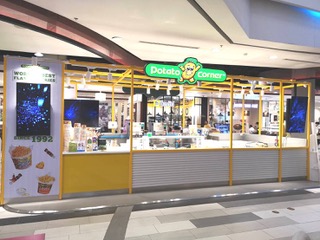
But I took it that this is a time when I can risk the most. If I were to fail, this would be the best time to fail. That’s why I decided I wanted to pursue it. Yeah, that’s what really triggered me, also. And I felt like, so I’m someone who doesn’t want to live with regrets. And I don’t want to be looking back at 50, 60 years old, and say, “Shit, I shouldn’t have done that.” I do not want to live a life with regrets at all.
I decided to push forward, so I flew there to the Philippines at that time. I remember that I stayed at a one-star hotel in a very dodgy area and I nearly got mugged. Literally. I love Filipino people, they’re great people. But then, Manila is not the safest city in the world. One time, one night, so I went to a bar. It was around like two kilometers away from the hotel. It was in Quezon City, which is in Manila. And then, I thought, “Oh, it’s only 8 p.m., two kilometers, maybe I’ll just walk home, back to the hotel. That was not a good idea.
I was grabbed twice.
On my arms, legs. And they said something to me, I just ran. And twice. Two different people.
I was scared shitless. I’d just turned 21 years old back then. But then that was the trip I discovered Potato Corner. And then, when I discovered Potato Corner, I went to talk to my partners. I said, “Look, this brand, it doesn’t really look good right now, but we can elevate this. There needs to be a lot of rebranding, a lot of investments, but I think we can do this.” And then, they said, “Yeah, Let’s do it.” So, we flew together to Manila to meet the owners. The owner’s a great person called Jose Magsaysay.. He is a grandson of President Ramon Magsaysay.
We met him and we got along really well. He said, “I like you; you have ambitions. I’ll give you the deal.” It was really like that. We had tequila at 9 a.m. in the meeting with him.
“Come, come, we’ll celebrate with the tequila.” “But sir, it’s 9 a.m.” “It’s okay.”
It’s amazing, so yeah. Anyway, so we met him, and we got along really well, and he was so generous. I had no experience at 21 years old. Literally none, so I did a business plan and presented it to him. And he loved it. That’s where my business case skills came into good use. We did a whole presentation on things and we were awarded the franchise, and then we kind of rebranded things in terms of stores, the quality, you know. We kind of did everything ourselves.
Genup: Did your family support you in your decision?
Pong: My family is from the corporate world. They supported me. But of course, they didn’t really want me to do this as much as they would want me to go into corporate. My mom wanted me to do Master’s straightaway, so what I did was, I joined law school as a compromise. So, after Bachelor’s I went to night school, I needed a bit of an excuse right, to say that I’m studying, so I didn’t have to go abroad or anything.

Genup: Who is your ideal customer?
Pong: The ideal customer is between 13 to 28 but, we’re really targeting more urban people. One, they have an urban mentality in the sense that they like going to malls. They like snacking. They are not so health conscious. So very urban people are our main target. And then, one of our major customers is also kids. We’re talking about seven-year-old, eight-year-old, nine-year-old. They absolutely love Potato Corner. The other day, I have a sister, she’s 10 years old. One of her friends wrote in her diary that her dream is to meet the owner of the Potato Corner and to thank him. Yeah, we really have these lovely kids. And just really loving Potato Corner. But our target as a whole is quite big. It really depends on the mall, also. Each mall has a very different customer profile. For example, some malls have a lot of families. Parents bringing their kids, like eight-year-old, 10-year old. But if it’s a mall like Central Ladprao, you have a lot of office people. Young professionals, 23, 24, and also college kids. We’ve got seven flavors. We’ve got the four original ones which are cheese, barbecue, chili barbecue, sour cream. And then, we’ve got three rotating seasonal flavors. Which are, truffle, right now it’s truffle, it’s sweet corn and grilled squid.
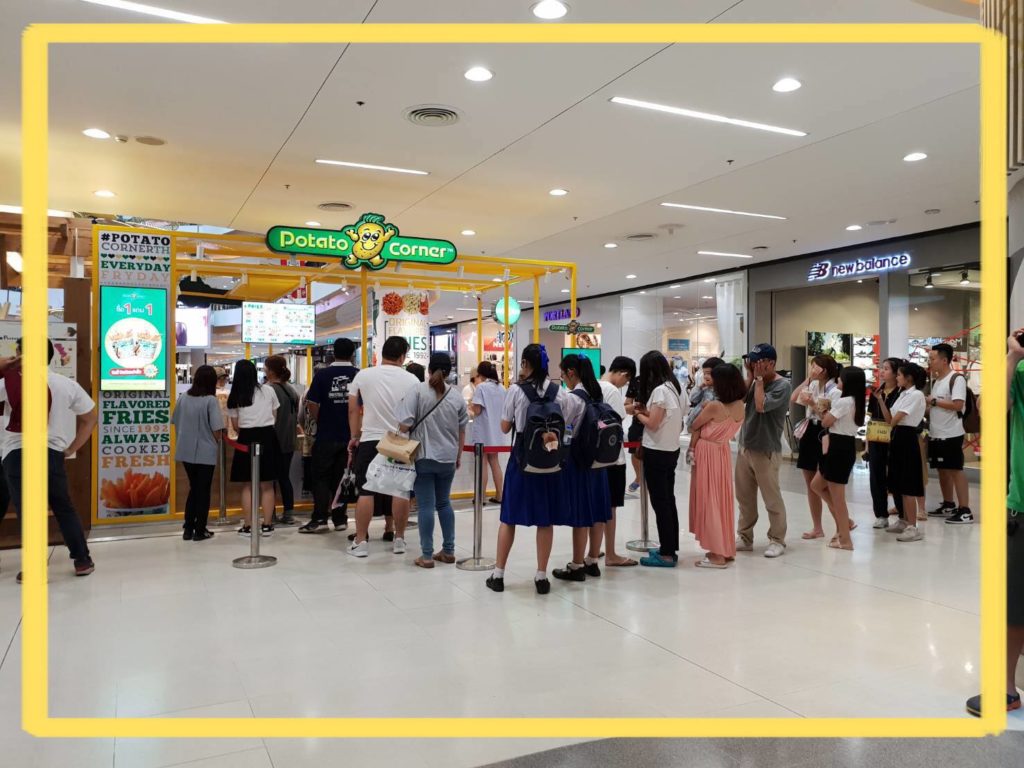
Genup: And what marketing channels do you use?
Pong: We don’t do any traditional media in the sense that we don’t buy TV ads, et cetera. But we’re mostly online. We do a lot of Facebook, Instagram, Twitter. Virtually all channels that can be done online. We don’t really believe in traditional media because we need a bang for our bucks. Because initially when we started off, we didn’t have a lot of money to spend, right. We didn’t have a lot of money to burn so we really had to make sure that every baht counts. We’re quite good at let’s say, like Facebook boosting et cetera, because we did that ourselves all the time. We do a lot of Facebook ads. We do that ourselves. We don’t hire anyone to optimize our ads because I think we can do it really well. Because we’ve been learning, doing it on our own for the past three, three and a half years. We spend a lot on the ads. And then, YouTube wise, we use influencers. Have them come review Potato Corner. And that’s most of the online things we do. Offline wise, because Potato Corner is a very impulse purchase, what we try to do is we try to have as many, we call it ISM. In store media. We try to get our message on all the escalators in the mall. Because we want them to be triggered when they see Potato Corner. When they see fries, they immediately want to have it.
Genup: Did you follow your business plan exactly or did you have to deviate quite a bit?
Pong: I think we’ve outgrown that business plan by quite a lot. It’s all about flexibility. For example, when we first started off in our financial modeling, in our business plan, we expected a certain amount of sales per store, right? And we presented that we wanted to hit a number of stores by this year. What happened later on was we found out that we can hit a much higher amount of sales per store than expected, so we’d rather have fewer stores than we have, but then have far higher sales per store. It turns out that we, in terms of revenue, we’ve beaten our expectations, or that initial brand by at least two to three times. And most importantly, it’s a lot more profitable that way because you know, you have less stores, and one store generates more money. Right now, I think Potato Corner sales per square meter is the highest in Thailand for all restaurants.
Genup: What was your initial hurdle? What mistakes did you make and how did you overcome them?
Pong: I think the most important things that happened were in the beginning. The biggest hurdles were that people didn’t really believe in us. And when people don’t believe in you, it means that they wouldn’t really talk to you or give you the space or give you the opportunity, as well. One of the reasons we had to bring Potato Corner instead of doing it ourselves also, in addition to Potato Corner having great flavors, is because to get into malls. They wouldn’t allow any brand, a new brand in unless you have a certain kind of history, etc. That’s why we brought Potato Corner in. We needed some kind of history to showcase to the mall. It was very difficult still. We had a lot of hurdles getting the spaces. There were a lot of cold calls, we had to like, our second location, Mega Bang Na, was a turning point for Potato Corner. Because Mega Bang Na is the world’s number one Potato Corner in terms of sales. There are Potato Corners in 12 countries,15 countries, I’m not sure now. Mega Bang Na was the world’s number one store. Now, Central Ladprao beat it, but at that time it was beating any store, including those in America. It was a shifting point for Potato Corner that allowed us to have a lot of capital for expansion. I spent four or five months trying to get that location to make money. It’s still until today, one of my proudest achievements.
I’ll tell you a story. It initially started off by, I wanted this space in Mega Bang Na. What I did was, I didn’t know anyone. What we did was we just went to their office, knocking on the door, like, “I want a space. What can I do to get a space?”
And they were a bit surprised, told us, “You have to go through this and this channel, etc.” But luckily somebody came to meet us, and we showed them a presentation that we prepared, that we really want a space here. “This is our brand, you know? We can sell this much. We think you can sell a lot more here.”
And they said, “Okay, you know what? There’s a great space here, 12 square meters only.” And I said, “Yeah, okay. Let’s do it, let’s do it.”
And then what happened was, they called me the next day and said, “Oh, we cannot give you that same space anymore, due to fire safety, we go by Swedish safety standards. But I really wanted that location. So, I said” Okay, look, if I can find you a fryer that has all the safety standards and the qualifications in the world, would that help?” And they said, “Uh, maybe, I don’t know.”
But I said, “Okay, you know what? I’ll go find it.” And so, I didn’t have any fryers in mind at that time. I went around. And I’m very lucky. I found a supplier that has a custom, handmade fryer from America, that has a self-ventilating system. That didn’t need an exhaust system.
Yeah, so I asked for a sample from the supplier, and I carried that to the meeting with me and said, “You want me to fry that for you?”
And they were shocked. “Okay, you were able to find it.” And then, one of the mechanics came to inspect it. And he was still like, “This doesn’t have a fire extinguisher. And so, it went back and forth and I called them every day for like four or five months. Every single day. Until one day I remember I was having dinner with my friends and then they called me and said okay, we will give you that space and I cried. I fucking cried.
Without that, Potato Corner wouldn’t be here today. Because it was really, really the steppingstone. It’s a 12 square meter store, but with the highest sales. And then, everything became a lot easier after that.
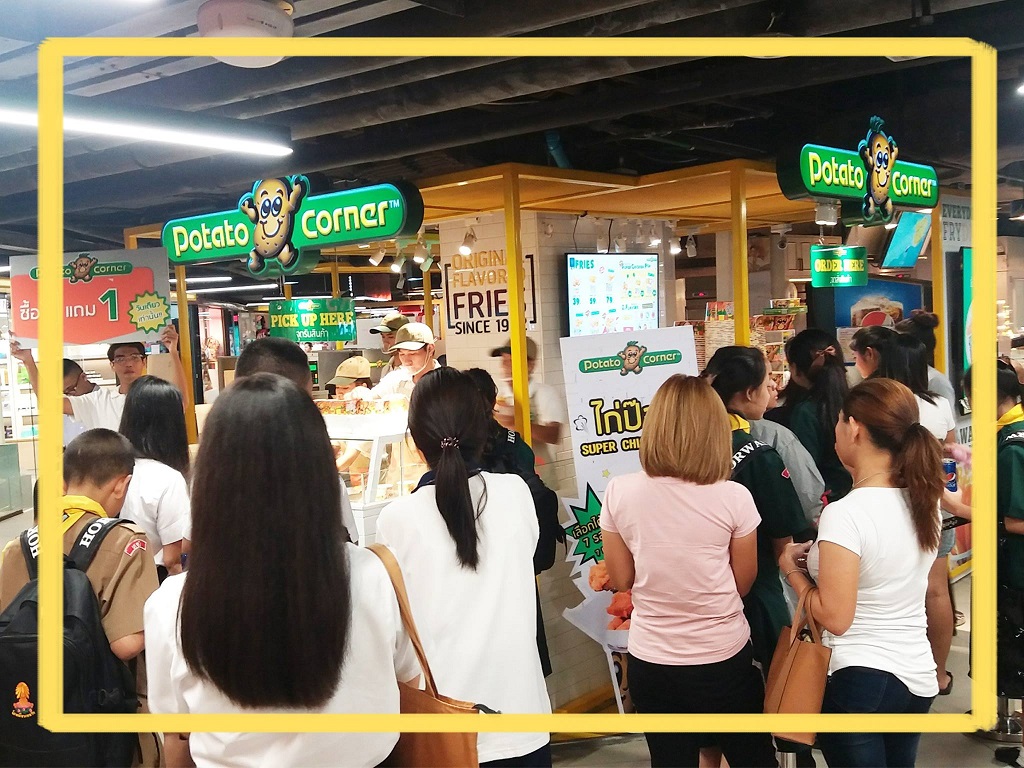
Genup: Do you have venture capital funding or is it organic?
Organic. We had a first round of capital pooling. Not a lot, by our partner from the Philippines and by us. And then, later on, we had some loans but a lot of it, most of it just cash flow. We were reinvesting our profits, basically.
Genup: Have you ever experienced a business failure? And how did you bounce back?
Pong: I’m very lucky in a sense that I never had a big failure. It will probably eventually happen someday. Because, you know, the long averages kicks in. But then, I did have a lot of mistakes that I’ve made from Potato Corner. The opening of bad stores, learning from the past mistakes. But I read from a guy, right, a Filipino guy, actually. I read something very interesting from him. He said, “You can make mistakes, but don’t just step on land mines. As long as you get hit, and don’t blow yourself up, that’s fine. Just make mistakes, but don’t make that big of a mistake that you can’t recover from it.”
Don’t step on landmines, that’s what he said.
Be very, very, very careful when deciding things. Be very rational about it, not be emotional about it. That’s why right now, we’re trying to be very data driven as a food company. Right now, the next step for Potato Corner is to become a very data driven company. Because right now in Thailand, F&B industry is a very traditional industry to say the least.
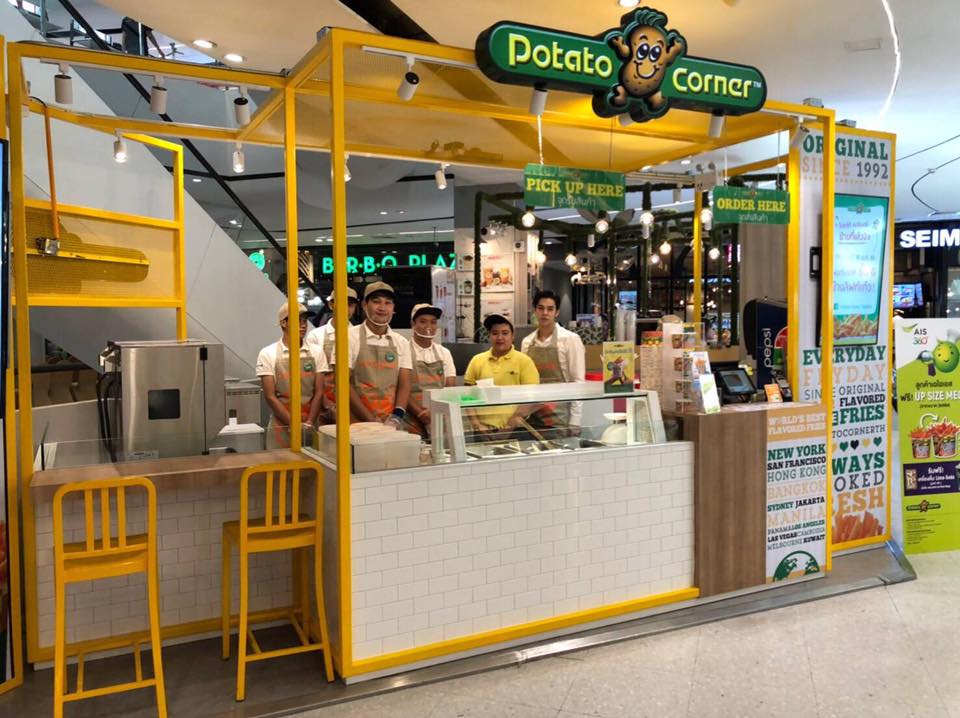
We want to become more data driven to ensure that our decisions are rational and are calculated enough that we don’t make mistakes or make at least mistakes as possible. So, we try to incorporate that into every aspect we’re working to. Right now, we suck at data. Okay, so it just, as a disclaimer, we really suck at it. Let’s say for example, location is the most important thing for a restaurant industry. Location, location, location. A lot of restaurants, a lot of chains in Thailand make mistakes by opening in a bad place, make a lot of losses. These chains or these people, they make decisions based on let’s say, their instincts, their guts, which is not wrong.
But I think there’s a better way to do it. In the past three and a half years, we’ve also been doing it based on when trial and error. We know what type of locations work, what don’t. But what I tell everyone is, “Look, if we die in a car crash tomorrow, what’s going to happen? Can the company survive? And make the right locations decisions without us?” And the answer is, “No.”
What we try to do is formulate everything in terms of mathematics. Let’s say a location will have a criterion of grading how good it is, right? Market accessibility, market brand awareness or shares of wallet, et cetera, so we try to incorporate everything into a scoring formula to determine to us that how much of this store will sell before even opening it.
And the KPI of the business development and project team depends on this, right? When we’re in the early stage we send a scout team to grade all the criteria, and then make an average score. And we’ll see and we’ll set that benchmark, and their KPI will be tied to that.
Moving forward, it won’t be me or my business development director deciding. It will rather be like a team and then we can replicate more of these people and then having them just grade the stores based on the formula that we have. And then, we’ll be more data driven that way, also. Also, what we’re looking to do is in terms of product development. Everything is done based on customer research, for example. Before we launch a particular product, it always depends on what the consumers say based on a survey, based on research.
Everything has to be based on numbers, and not just gut feeling alone. It has always been gut feeling, it’s been good, but it does not last forever.
Because we’re getting a lot bigger now. And we have more responsibilities, more people to take care of. It’ll be irresponsible to just base it on guts.
So my goal is a 2030 plan. I hope to hit around 700 stores by 2030. The thing about Potato Corner is, it’s easy to do in the sense that you can sell it anywhere. When I decided on choosing Potato Corner to bring it to Thailand, the criteria I used to ask myself was that, “Will this brand last in the long run? Is it a sustainable brand?” “Is this a fad?”
So then to apply, the most important thing is to understand if Thai people have been eating a particular product for an amount of time. French fries. The second thing is, if this product has a repeatability, because we don’t want to sell something that they want to come once and then never come back again.
And Potato Corner happens to fit that mold, right? It may not be the most glamorous product in the world, but it works. That’s why I brought in Potato Corner. To have a sustainable brand that is repeatable and can open anywhere. And that’s the most important thing.
The third question I asked myself is, “Can this be open anywhere?” I look at Dairy Queen. Dairy Queen has 500 branches all over Thailand. We wanted, initially, we wanted to be the Dairy Queen of savory snacks. Because Dairy Queen is ice cream and French fries. That’s when I know that Potato Corner is something that you can open anywhere in Thailand. You can open 700 branches no problem.
It will take time, yes, for people to get more acceptance of eating fries more regularly. But then, we’re on that route now.
In the long run, I think Potato Corner can be in every Tesco Lotus, in every Big C, in every province in Thailand. In the long run, we look at ourselves, not as selling fries. But the key, the key DNA of us, of Potato Corner is actually the flavor. We want to be the most loved flavored snack brand in Thailand, love flavor fries. We want to dominate the snack category. Our closest competitor is Auntie Anne’s, and they only have 140 branches. Yeah, so in the long run, we’re looking to have a sustainable brand, we can have like 700 branches at least in Thailand alone.
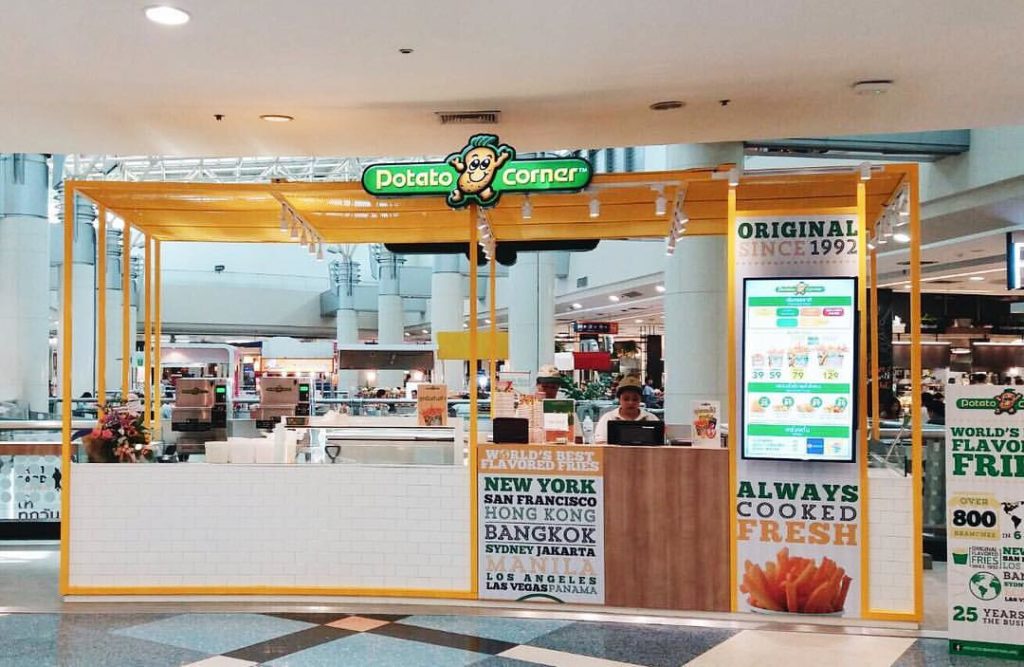
Genup: Do you have an exit?
Pong: Not at this point. I thought about getting listed. Original plan was 2022. But then, I’ve decided not to anymore. Because it’s a great thing we’re doing here and it’s very fun. It’s good the way it is, and we have no requirements to have more cash injections or anything. We can self-fund ourselves right now.
I think we just want to keep it this way for a long time to come. I told my team that the next discussion about listing or anything will happen, 2030, the earliest.
Genup: How do you stay motivated? What passion drives you?
Pong: I think initially it was the fight. It was the fear of failure, also. When you say that entrepreneurs are optimistic people, I agree in a certain extent, but I’m a very pessimistic person in the sense that I would always try to think about the worse possibilities always. Because that would really make me work my ass off, to mitigate those risks.
Fear of failure in the beginning. Now, it’s fun. But I’m trying to keep my pessimism the way it is, because now, there are more responsibilities involved.
Initially, which is four people, one store. Now, it’s 250 people. There’s a lot of families to feed. There’s a lot of people we have to take care of. I’m really driven by responsibility at this point. And you just want to build great things, you know?
Genup Who do you admire?
Pong: I really admire Bill Heinecke. I actually his picture on my phone. When I changed my phone, it was somehow deleted. It was a picture of Khun Bill. He’ was like 22 years old, wearing a suit. You know what his company was? It was a window cleaning company. He is wearing a suit and in his right hand is a bucket. In his left hand is window cleaner. Walking around Bangkok.
The picture was taken by a photographer of Life Magazine. He was a nobody back then, but I really admire him for building everything from scratch. He’s a guy with the most entrepreneurial spirit I’ve ever seen in my life. I’ve met him once, and I was really star struck. He was a very nice gentleman. Because I knew I wanted to do something in the food industry, when I was in year three of college, I did my intern at Minor Food at Sizzler. And we had this staff party and he was there. I still keep a picture that I have with him. I took photos. He doesn’t know me of course, bu I like people with guts. I really respect those people. I mean, great corporate people are great also, but great entrepreneurs are another breed. Corporate people do take risks too but then if you follow a certain path and you do things right, and your performance is good you’re guaranteed to rise up somehow. But entrepreneurs are never guaranteed. Keep putting 120%, do your best and still statistically you may fail.
Genup: Any books, TV shows, movies that you think have motivated you?
Pong: Yes. Actually, one of the books that really motivated me was the Elon Musk book, SpaceX and the quest for a fantastic future. People have different opinions about him, of course. He’s a very polarizing guy, but I’m on the side of liking him. There are things I don’t like about him of course. Him cursing at the divers at the Tham Luang or whatever. But then a lot of things he does and the guts and the kind of person he is, really motivates me.
I read that book just when I was starting Potato Corner. I mean, the book was around three years old already I think, three or four years ago. But it really motivated me then.
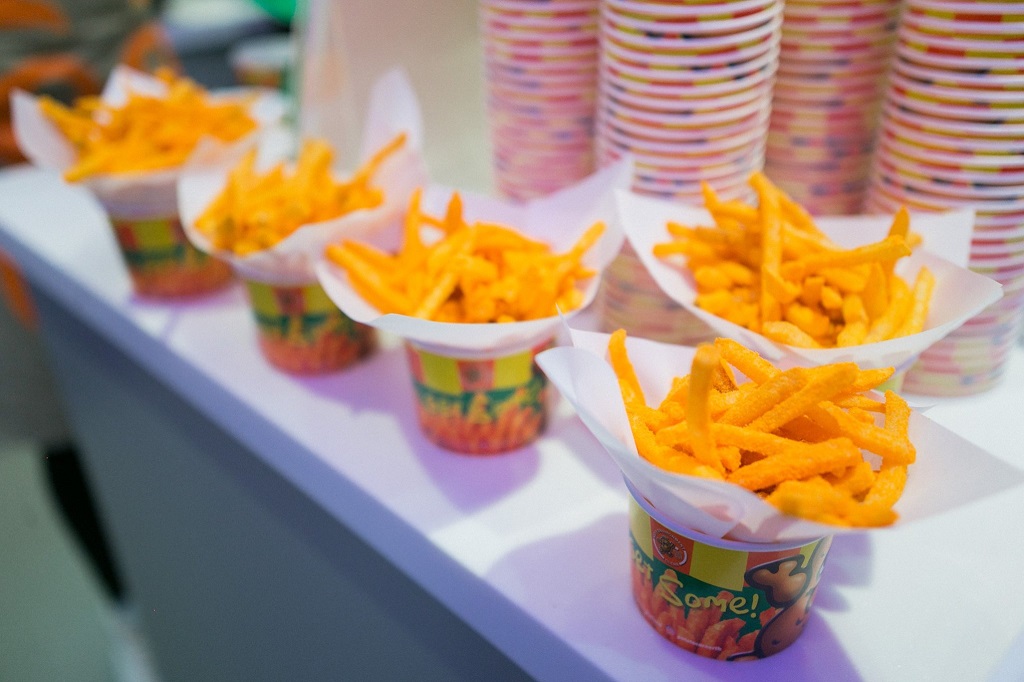
Genup: What don’t you like about being an entrepreneur?
Pong: That nobody is there to teach you. Nobody is there to coach you. Because, you need to learn everything by yourself. There’s no one to guide you. There’s no mentor. That’s the downside of starting a business straight out of college. You have to learn everything by yourself. It’s very, very, very difficult and you learn on the job. If you become a CEO of a company, the normal track would take you what, 20 years at least, 25 years to become a CEO of a corporation, whatever. And along the way you get to learn from a lot of bosses, a lot of mentors, when you run your own company page from 21, 22 years old, you don’t know what to do. You have to make it up as you go along. And I’m struggling every day also. You want to be better, to learn more, to find mentors. Panupong (Ticketmelon.com) and I have a session every month or two, to have drinks and also to share experiences. When you face problems, you can’t call your boss. You’re the boss.
Genup: What would you tell your younger self before he started on this journey?
Pong: What would I have wanted my younger self to know? I would tell him to chill a bit more, I guess. To relax a bit more, because when I was starting off, I had a horrible work-life balance, okay. I was at the store every single day from 10:00 AM to 10:00 PM.
I mean every single day. I mean like literally, there was not a day that went by in seven months that I was not at the Central World store. I was hospitalized twice. I collapsed once. I had nightmares about the store being flooded. I had a nightmare about the fryers breaking down another day. I would tell him to chill a bit more, not take it to heart. But then I’m also not sure if I would tell him that, because if I did, I’m not sure if I would be here today.
It’s a conflicting thought I’m having here, but yeah, I would tell him to chill a bit. Not to worry too much. I have anxiety issues. I actually do have generalized anxiety disorder. And this really started when I started the business. I had a panic attack before opening one of the stores. I would tell him to relax more, to chill a bit more. Because, to be honest with you, I think things have been really great. I honestly could not have imagined how it could have been better. The lesson for me is that I could have taken more care of myself and also to be more organized.
Yeah. Chill and start organizing your life. Two things.
Genup: What does success in life mean to you?
Pong: For me, money is just a means to an end. I think we were born to make some societal impact. I don’t want to die on a pile of gold. It’s good to have money, but it’s better to die knowing that you’ve made a huge impact towards society, and that in my opinion, is what I think we were born for. My goal in life is that I want to spend from graduation until 35 or maximum 40 years old, doing business. I have a lot of other investments in the Philippines right now also. I want to keep doing this until I’m 35 and have enough capital to fuel my other ambitions. I think that’s what I was born for. That’s what we were born for. I think that’s what success would mean to me. If I can make as much impact to the lives of millions and millions of people in a positive way, nothing could be better than that. In addition to that, of course, having a great family, having a great health. I mean, for me that’s a success already. I would never say, having $1 billion in the bank. It’s a nice thing and it’s not… You have no one besides you, if you’ve done nothing, you’ve been an idiot, an asshole all your life, it wouldn’t matter. I get it today, when you look back. That’s what I would want to see for my deathbed, that I’ve made a lot of impact, that I’ve lived a great life, with a great family, great friends. That would mean success for having all that.
Genup:What advice would you give someone wanting to become an entrepreneur?
Pong: I would tell them to think very carefully, because it’s not as pleasant as it looks. And also, if you’re happy working in a corporate life, if you’re happy being an office employee, by all means do it. You don’t have to be ashamed or embarrassed or whatever. A lot of corporate people, a lot of office people, most of them actually are much happier than ne, because of all the stress I’m facing, all the responsibilities and obligations, it’s just immense. I would tell them that, choose very carefully, there’s no right or wrong. There’s no shame If you do want to live a normal life. Honestly, I sometimes feel envious that they can live those lives and really enjoy it. And if you do decide to become an entrepreneur, think twice and think thrice and think a thousand times and then if you do really want it, then go for it. But don’t feel pressure. Just because…
People think that becoming an entrepreneur you have the freedom to do what you want, when you want to have a chilled life, but actually it’s the opposite of that. At the end you’re probably successful, but most of the time it’s not the way it is.
So, get a chilled life elsewhere. To me, that’s the best kind of life also.
So, I would advise them to think twice, thrice and if they want a chilled life, no. Right, I’m going to be quiet.
Related posts
3 Comments
Comments are closed.
Today's pick
Hot topics
Welcome to Generation Upstart
It starts with an idea — a fusion of thoughts and experiences, a blending of desires and dreams. Bursts of electricity fueled with faith, love and creativity leap across synapses generating the necessary expression to give it real form and substance. Sometimes, an entrepreneur’s call…
Careerlist: Never Waste a Crisis
According to Michael Scissons, the most important thing you can do to maximize your chance of entrepreneurial success is to build your tribe. Start as early as possible, trimming and pruning like a patient gardener, while continuing to add value to the network. For these…
RingZero: On Employee Satisfaction and Success
Great people make the great teams that make the great workplaces, and Mr. Asmat Yousri is a big believer in people. After all, he has been at this since 1996. An ex-banker, he saw no obstacles transitioning from a corporate position to an entrepreneur. In…

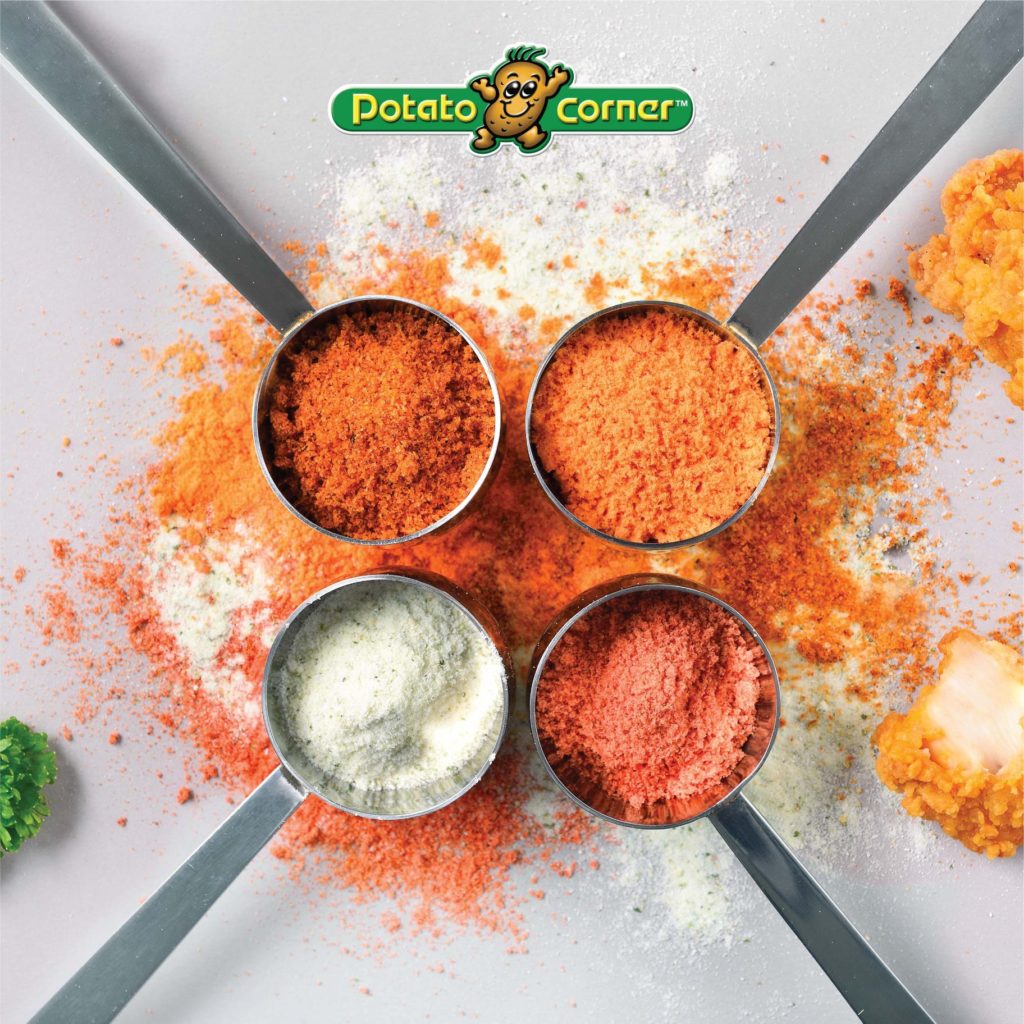


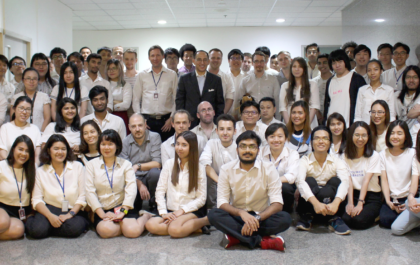
Great content! Super high-quality! Keep it up! 🙂
Great website! It looks extremely good! Sustain the helpful work!
Just simply needed to emphasize I’m just thrilled I happened in your web site!